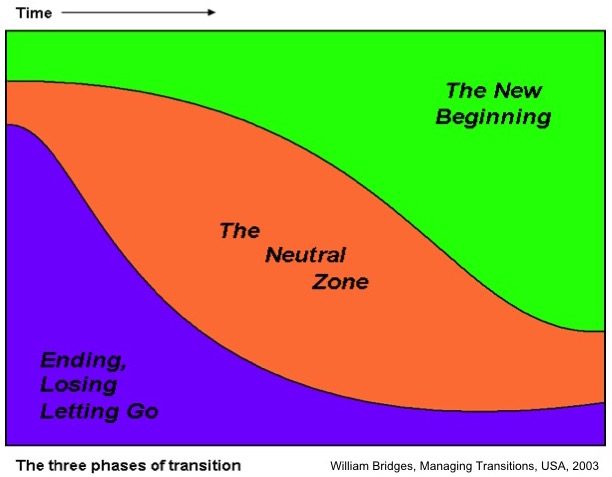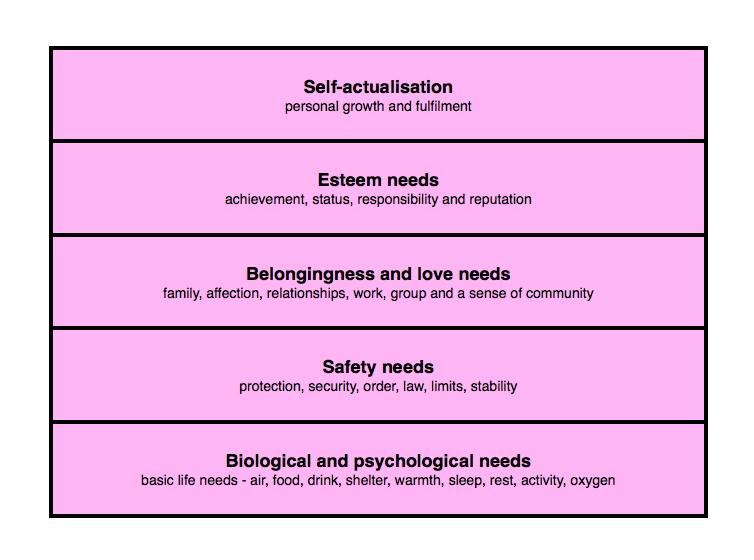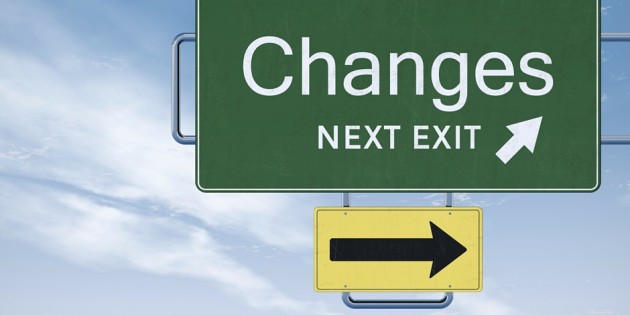Change is one of the few certainties in life.
Many of us want to change different things in our lives or about ourselves, but that is not the challenge.
The challenge (or issue) is we criticise and judge ourselves harshly for not making the change. And subsequently end up being in resistance with the present moment, which equates to suffering.
A few years ago, it dawned on me. I realised I had to change on the inside for the outside to change. It was a real lightbulb moment and I developed a deeper understanding of what Aldous Huxley meant when he said – “I wanted to change the world. But I have found that the only thing one can be sure of changing is oneself.”
Subsequently, in this post I am going to discuss three reasons why change can be so hard. I will talk about –
- What is a Change?
- What is a Transition?
- What is the Difference between a Change and a Transition?
- Maslow’s Hierarchy of Needs
- Six Stages of Change
- 7 Reasons Why Change Can Be Hard
Let’s get started…
What is Change?
There are many definitions of change, including –
- “to make or become different” or “an act or process through which something becomes different” ~ Google
- “to exchange one thing for another thing, especially of a similar type” or “to improve”~ Cambridge Dictionary
- “to give a completely different form or appearance to; transform” ~ The Free Dictionary
- “to become different, or to make someone or something different” ~ MacMillan Dictionary
- “to become different”, “to make something or someone different” or “to become something else” ~ Merriam-Webster.
Do these definitions of change, resonate with you? Are there any aspects of change missing?
What is a Transition?
Again, there are a number of definitions on transitions as well including –
- “the process or a period of changing from one state or condition to another” ~ Google
- “movement, passage, or change from one position, state, stage, subject or concept etc., to another” ~ Dictionary.com
- “a change from one state or condition to another” ~ Merriam-Webster
In Managing Transitions: Making the Most of Change, William Bridges talks about transitions as psychological. The three phases of transition that are discussed in Transitions: Making Sense of Life’s Changesand Managing Transitions: Making the Most of Change, are –
- an ending (letting go of a situation);
- a neutral zone (the confusing or distressing area of in-betweenness); and
- a new beginning (launching in to a new situation).

What is the Difference Between a Change and a Transition?
According to William Bridges in his book Managing Transitions: Making the Most of Change, transitions are psychological and have a 3 phase process (see above), whereas change is situational.
Maslow’s Hierarchy of Needs
Abraham Maslow (1908-1970) started his professional career as a behaviourist, however moved on to become a psychoanalyst. In 1943, in a paper titled “A Theory of Human Motivation”, he proposed the psychological theory known as Maslow’s Hierarchy of Needs. His suggested we had two different types of needs –
- the first four levels of the pyramid and are needs relating to survival and focusing on deficiencies (D-needs)
- the final layer and needs relating to psychological growth and focusing on being ourselves and everything we are capable of becoming (B-needs).
Maslow suggested we focus on the first level of motivation and then once that is met then we can focus on the next level. The Abraham Maslow – Hierarchy of Needs as as follows:

You may also like to read Anthony Robbins Six Core Human Needs, which talks about the need for certainty.
Six Stages of Change
Research has shown that change can be complex and sometimes doesn’t go according to plan or linearly. You can often take two steps forward and one step backwards, do a U-turn or even go backwards. Knowing the stages of change, before you are ready to make a change can help you with the change process and have greater success in the long-term.
In the book Changing for Good, Prochaska, Norcross and DiClemente share 6 Stages of Change. The six stages of change are –
- Pre-contemplation (“I can’t…”),
- Contemplation (“I may…”),
- Preparation (“I will…”),
- Action (“I am…”),
- Maintenance (“I am still…”), and
- Termination (“I have…”).
You can read more about the six stages of change here.
7 Reasons Why Change Can Be Hard
There are a number of reasons why change can be hard, a few of them include –
Reason 1 – You don’t start small:
Most people who want to make changes are optimist and try to make too big a change. Why not just start with a small step? I remember when I first starting practising mindfulness, I couldn’t sit still for a minute, let alone 30. I struggled so much in those early stages, however I never gave up. How can you break down the change you are wanting to make in to smaller steps?
Reason 2 – Change is dynamic and circular not linear:
Some of us may have been conditioned to think that change is a linear process (i.e. do this and get that). However, this is not the case, change is very dynamic and each step you take can (and often does) have an impact on the next step you take.
Reason 3 – Faulty thinking:
How do you respond to yourself when you are making a change? Many of us criticise and judge ourselves harshly. This criticism ends up as being in resistance with the present moment, which then equates to suffering. No resistance to the present moment = no suffering. Resistance = suffering. It is simple really, but that doesn’t mean easy!
Reason 4 – Perfectionism:
Have you ever tried to change and given up because you have got it right on the first try or your have tried to be perfect? Don’t worry you are not alone! Remember, it is very rare that you will get anything correct the first time, so loosen up on yourself. 🙂
Reason 5 – Lack of accountability:
How many times have you tried to change something without the support of other people? Yes, asking for help can be challenging, however we are hardwired for connection, so getting support (i.e. emotional, spiritual and behavioural) from the right person or people is essential for change. As a side note: this is one of the reasons why I created the Practising Presence (Un)Learning Haven, so we can support each other collectively in the changes we make individually.
Reason 6 – You expect it to be comfortable:
Most of the time change is uncomfortable. However, most of us want change to do the same things we have always done and expect different results. Change doesn’t happen that way. In order to change we have to get used to (as much as we can) to being uncomfortable. As Thomas Edison wrote – “We shall have no better conditions in the future if we are satisfied with all those which we have at present.”
Reason 7 – There is no certainty:
Being a lover of certainty in my life, this is one of the reasons that prevented me from starting change or sticking to any change in my life.
Over to You…
What other reasons can you come up? I hope this post has helped you understand change further and given you some insight why change can be hard.
If you are ready to reclaim your courage and take the next step towards freedom and opening your heart, why not join our Toolkit?
Reference –
Prochaska, J., Norcross, J., & DiClemente, C. (2010). Changing for Good: A Revolutionary Six-Stage Program for Overcoming Bad Habits and Moving Your Life Positively Forward. New York, USA: Harper Collins Publishers.

















Leave A Response